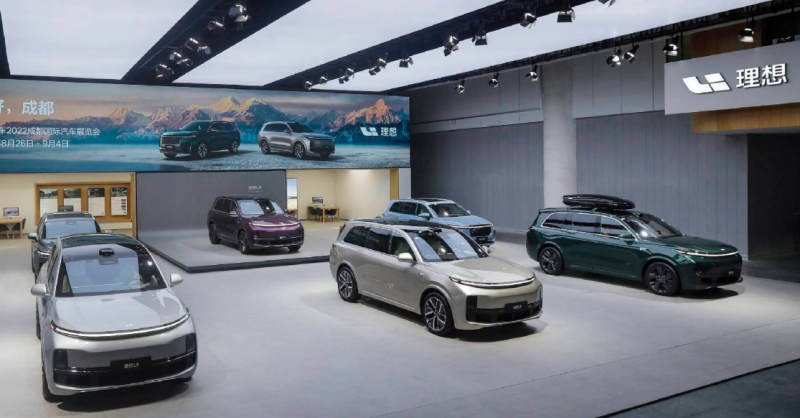
Beijing: Due to the increased rate of EV adoption on the mainland, Chinese smart electric vehicle (EV) maker Li Auto unveiled its third model, the L8, in an effort to compete with international brands such as BMW and Audi.
More than a month ago, the Beijing-based automaker started accepting orders on Friday for the six-seater SUV, with prices ranging from 359,800 yuan (US$50,730) to 399,800 yuan. In November, customers will receive their first shipment of L8s.
Also Read: Hong Kong is on the verge of establishing a voluntary carbon trading platform
According to Gao Shen, an independent analyst in Shanghai, as more consumers choose electric vehicles over gasoline-powered vehicles, a variety of new EV models have entered the mainland market. "Premium EVs will attract thousands of young drivers and present a threat to premium internal combustion vehicles,"
According to Paul Gong, an analyst at UBS, the adoption rate of electric vehicles in China is projected to reach 30% in the coming months, compared to 25% in August. He said this year's total deliveries could exceed 6 million units, more than double last year's numbers.
According to a Swiss bank prediction, three out of every five vehicles sold in 2030 will be battery-powered.
According to Fate Zhang, creator of Shanghai-based electric vehicle news website CNEVPost, Li Auto is aiming its marketing at affluent Chinese homes that were formerly BMW, Audi and Mercedes-Benz enthusiasts.
Also Read: Fiscal deficit reaches Rs. 5.41 cr between April and August
Over the past ten years, the dominance of luxury German automakers in the country's premium vehicle market has been gradually diminishing. Their combined market share, which stood at about 80% in 2010, declined to 57.8% in the first half of this year, according to data from the China Association of Automobile Manufacturers.
In China, the price of the BMW X5 SUV starts at 605,000 yuan, while the Audi Q5 SUV ranges from 400,000 to 500,000 yuan.
The company is regarded as China's best response to American automaker Tesla so far, which along with Shanghai-based Neo and Guangzhou-based Xping is the undisputed leader in the country's premium EV segment.
According to Li Jiang, co-founder and CEO of Li Auto, customers will be able to view vehicles at Li Auto's showrooms across the country during the week-long National Day holiday starting Saturday.
Li Auto has accelerated the launch of new model lines this year to capitalize on the growing acceptance of battery-powered vehicles in the world's largest EV market.
Also Read: World's Fastest Growing Economies
Until the automaker introduced the grand full-size SUV L9 in June, Lee Auto's only model available to mainland drivers was the larger-sized SUV Li One, which made its debut in late 2019.
The L9 is priced at 459,800 yuan and has an increased battery range that allows it to travel up to 1,315 kilometers on a single charge. In October, Lee Auto will start shipping the L9.
The L8, which was unveiled on Friday, also boasts of a 1,315km driving range.
Ahead of Friday's launch of the L8, which was described by Li Jiang as an improved version of the Li One, Li Auto was experiencing a drop in sales over the past few months as consumers avoided the Li One model.
Lee Auto sales fell 56.1% from the previous month to 4,571 units in August. This was slightly better than 4,167 in April when the COVID-19-related lockdown hit the automotive supply chain and disrupted production, making it the second lowest monthly sales of the year.